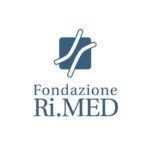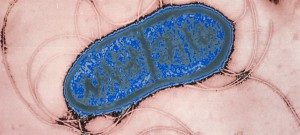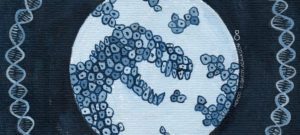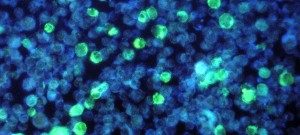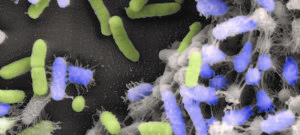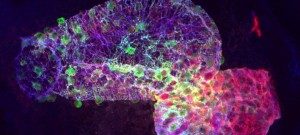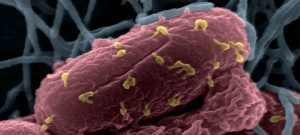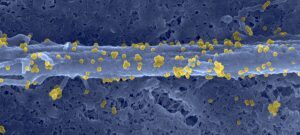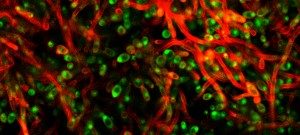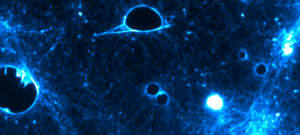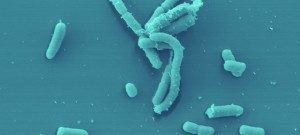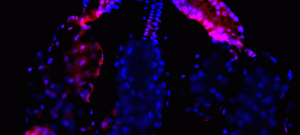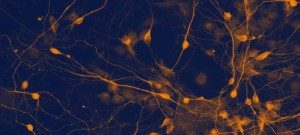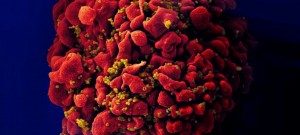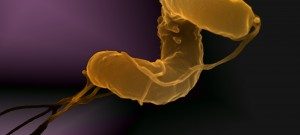The microbial communities that live with us, the microbiota, are now understood to be a key component of our being, playing roles in metabolism, immunity and behavior. More than a decade has elapsed since the first meta-sequencing of the human intestinal microbiota, and the demonstration that the microbiota can transfer pathogenic or protective traits to a new host. Microbiotalogy has therefore blossomed enormously in the last decade, for the many promises it offers in the development of new approaches to prevent or treat pathologies.
At Institut Pasteur, many different interests in microbiology, infectiology, immunology and neurosciences converge to investigate the microbiota. At the same time, a plethora of approaches have been developed to study the microbiota, including sequencing and advanced analytical approaches, microbiology of the different types of microbes (bacteria, fungi, protozoans, virus and phages) and gnotobiology (mice devoid of microbiota or colonized with a controlled microbiota).
For these reasons, we have created a Microbiota Bureau with the aim to:
- Centralize the information on the who/how/what of microbiota research on campus, in order to create a platform of discussion and exchange
- Reply to queries on how to develop a microbiota project at Pasteur, and who to contact for specific questions and issues, on campus and beyond.
- Organize information seminars on microbiotalogy.
- Develop projects of general interest for Institut Pasteur
- Attract funding
Please contact the members of the M bureau for any queries, ideas or discussions:
- Marion Bérard, Gnotobiology
- Benoit Chassaing, Microbiology
- Laurent Debarbieux, Microbial Virology
- Gérard Eberl, Immunology and Neuroscience
- Sean Kennedy, Sequencing and bioinformatics
- Javier Pizarro-Cerda, Infectiology
Contact us: microbiota@pasteur.frDETAILS ON PROJECTS (Non-exhaustive list) – Read more ↖️
Hugues Aschard – Statistical Genetic Unit
Dissecting the predictors of the microbiome variability
Read more ↖️Taxa co-abundance is becoming a metric of high interest to investigate the role of microbial communities on human health. However, formal statistical methods to identify variables associated with changes in the co-abundance of taxa are still lacking. We are developing a multivariate method to screen for the effect of predictors associated with the co-abundance matrix of taxa from the gut microbiome. The approach address multiple limitation of existing tools, including the adjustment for covariate, and the analysis of both continuous and categorical predictors.
Financial sources: ANR (ANR-20-CE15-0012-01).
David Bikard – Synthetic Biology Unit
CRISPR-Cas and bacteriophage tools to investigate the genetics of gut bacteria
Read more ↖️Bikard’s lab is developing genetic and DNA delivery tools to investigate bacteria of the microbiome. The project funded by an ERC Consolidator grant aims to establish a collection of genetically amenable bacteria, to identify defense mechanisms susceptible of blocking DNA delivery and strategies to bypass them. We are also working on the development of phage vectors to efficiently deliver DNA to bacteria of the microbiome directly in situ. Combined with CRISPR-Cas tools, this will enable to perform in situ genetic perturbations of gut bacteria, providing novel insights into the genetic requirements for growth in the gut environment and into the niche occupied by different members of the microbiome.
Benoit Chassaing – Microbiome-Host Interactions
Microbiota-Mucus Interactions in Health and Diseases; Diet-Microbiome-Host trialogue
Read more ↖️The intestinal tract is inhabited by a large and diverse community of bacteria, collectively referred to as the intestinal microbiota. When stably maintained at an appropriately safe distance from the epithelium, the microbiota provides important benefits to its host, such as energy harvest, pathogen exclusion and promotion of immune system development. However, disturbance of the microbiota-host relationship, as a result of genetic and/or non-genetic factors, can alter intestinal homeostasis and drive chronic intestinal inflammation. The observation that an array of diseases afflicting humanity associate with chronic inflammation, including inflammatory bowel diseases, cancer, and metabolic syndrome, highlight the need to better understand the host-microbiota relationship. Moreover, the fact that incidence of these chronic inflammatory diseases has rapidly increased makes it particularly urgent to define and understand the non-genetic factors that have disturbed this host-microbiota relationship.
An array of mechanisms serve to maintain host-microbiota homeostasis in the intestine. Amongst the most important is the complex dynamic mucus layer that keeps the epithelial cell surface nearly bacteria-free. However, we have shown that some modern stressors can detrimentally impact the intestinal microbiota in a way that can perturbs bacterial localization and promotes chronic inflammation. This notion is exemplified by our published findings that commonly used food additives can detrimentally impact the microbiota, increasing the ability of specific members to penetrate the mucus layer and induce chronic intestinal inflammation. Such microbiota encroachment drives colitis and colorectal cancer (CRC) in animal models of these diseases and promotes metabolic disorders in mice lacking genetic predisposition. Importantly, the general notion that microbiota invasion of mucus promotes inflammation is not specific to food additives. Rather, my team’s research has identified other factors that can detrimentally impact microbiota function, including an innate immune deficiency and pathobiont infection. Thus, our central hypothesis is that alteration of the host/microbiota homeostasis at the mucosal surface is central in driving chronic inflammation and associated downstream diseases.
Hence, our central objective is to broaden and deepen our research on mucus invading bacteria, deciphering how they attain inappropriate locations and defining their role in promoting chronic inflammation and associated diseases. Furthermore, we are scrutinizing mechanisms beyond microbiota encroachment, both from a microbiological and an immunological point of view, which will allow us to develop innovative therapeutic tools aiming to keep microbiota in check and prevent microbiota-associated diseases. Finally, we propose to significantly improve our understanding of how inter-individual variations in microbiota composition drive phenotypic responses, including antimicrobial resistance dynamic and propagation, thus advancing our ultimate goal of developing microbiota-based personalized medicine and nutrition.
We anticipate that the knowledge gleaned from these studies will change our definition of a proper host/microbiota relationship, both microbiologically and immunologically. This will elucidate mechanisms by which microbiota perturbation promotes inflammation-associated diseases and open innovative avenues to prevent and treat chronic inflammatory diseases.
Financial sources :
ERC Starting Grant Invaders
ANR PRC Emulbiont
ANR Antibioresistance DREAMLaurent Debarbieux – Bacteriophage, Bacterium, Host U5
Deciphering the role of bacteriophages in the intestinal microbiota
Read more ↖️Our team aims to decipher the role of bacteriophages in the microbial ecology of the digestive tract of mammals. Which conditions regulate the life cycle of temperate bacteriophages (insertion vs. induction) and which parameters influence the antibacterial action of virulent bacteriophages are two mains topics that we are addressing using murine models. In particular, we are engaged in the deep characterization of the isobiotic mouse model OMM12, which consist on an axenic mouse line permanently colonized by a defined set of 12 bacteria. Using a combination of complementary approaches (meta-transcriptomics, meta-metabolomics, meta-3C and virome sequencing), we will describe the healthy microbiota of OMM12 mice. This murine model, which provides a high reproducibility, is suitable to study several processes such as colonization by intestinal commensals and pathogens as well as colonization resistance. Along these studies, we provide a focused expertise on bacteriophages.
Financial sources: ANR, Fondation DigestScience, Institut Pasteur
Aleksandra Deczkowska – Brain-Immune Communication lab
Microbiota installation shapes brain’s developments via the choroid plexus
Read more ↖️We focus on the choroid plexus (CP), one of the interfaces of interactions between the blood (carrying microbial products and immune cells) and the brain and an organ that produces CSF, shaping brain development, maintenance, and function. In collaboration with Eberl’s lab we investigate how microbiota installation in the early post-natal period shapes the function of the CP during key developmental windows and what is the contribution of these changes to the development of the brain. We use single cells and bulk genomics, direct CP manipulation using viruses (AAV) and variety of immunology and neuroscience-related readouts.
Financial sources: ANR (PRC with Gerard Eberl) and ERC.
Gérard Eberl – Microenvironment & Immunity Unit
Neonatal imprinting of the immune system by the colonizing microbiota
Impact of the microbiota on brain function
Read more ↖️Neonatal imprinting of the immune system by the colonizing microbiota
At birth, mucosal and skin surfaces of mammals are colonized by a diverse microbiota. The largest microbial community is found in the intestine, but its ecosystem is limited by the unique milky food supply. At weaning, mammals diversify their food, leading to an important expansion of the microbiota that is matched by a vigorous immune response, termed the weaning reaction. This weaning reaction is key in setting the reactivity of the immune system into adulthood, via a phenomenon termed neonatal imprinting. As a consequence, perturbation of this reaction leads to increased reactivity of the immune system and increased susceptibility to inflammatory pathologies, such as autoimmunity and allergy, and their long-term consequences. We are exploring the factors that influence the weaning reaction, the nature of neonatal imprinting, and the consequences of neonatal imprinting on immune reactivity to diverse challenges later in life.
Financial sources: FRM, EU, DFG, Industrial partnerships.
Impact of the microbiota on brain function
The microbiota generates a broad universe of metabolites that regulate many aspects of physiology, the immune system and the brain. We have shown how a perturbed intestinal microbiota prevents the normal absorption of tryptophan metabolites and arachidonic acids by the intestine, and therefore, to deficiencies in the manufacture of endocannabinoids and neurotransmitters. Furthermore, we have observed that neurons in the hypothalamus directly sense muropeptides released by proliferating bacteria in the intestine, thereby regulating food intake and body temperature. We now, more generally, map the impact of bacterial metabolites on neuronal activity of the brain, in order to understand their role in physiological and cognitive functions of the brain.Financial sources: ANR, SNSF, Donators.
Publications↖️
Bacterial sensing via neuronal Nod2 regulates appetite and body temperature.
Science, 2022
doi: 10.1126/science.abj3986.Excess calorie intake early in life increases susceptibility to colitis in adulthood.
Nature Metabolism, 2019
doi: 10.1038/s42255-019-0129-5.Effect of gut microbiota on depressive-like behaviors in mice is mediated by the endocannabinoid system.
Nature Communication, 2020
doi: 10.1038/s41467-020-19931-2.Changes in Gut Microbiota by Chronic Stress Impair the Efficacy of Fluoxetine.
Cell Report, 2020
doi: 10.1016/j.celrep.2020.02.099.A Weaning Reaction to Microbiota Is Required for Resistance to Immunopathologies in the Adult.
Immunity, 2019
doi: 10.1016/j.immuni.2019.02.014.Immunity by equilibrium.
Nature Reviews Immunology, 2016
doi: 10.1038/nri.2016.75.MUCOSAL IMMUNOLOGY. The microbiota regulates type 2 immunity through RORγt⁺ T cells.
Science, 2015
doi: 10.1126/science.aac4263.Mathilde Gendrin – Microbiota of insect vectors
Read more ↖️Our group is interested in the mosquito microbiota, which affects their capacity to transmit pathogens such as malaria parasites or dengue virus. The microbiota affects vector competence, i.e. the ability of mosquitoes to support parasite or dengue virus development, as well as mosquito lifespan. Microbes are also required for larval development and impact reproduction, hence affecting mosquito populations.
We are based at Institut Pasteur de la Guyane, which enables us to combine field and laboratory research, as French Guiana is largely covered with Amazon rainforest. In the field, we collect mosquitoes to study the composition of their microbiota, to rear them in the laboratory, or to isolate bacteria. In the laboratory, we developed a novel approach to produce germ-free mosquitoes, which can then be colonized with our field-derived isolates. This allows us to study the role of the microbiota in larval development and adult physiology.Financial sources: ANR, Labex IBEID and Université de Guyane.
Ivo Gomperts-Boneca – Biology and Genetics of Bacterial Cell Wall
The role of peptidoglycan as a signaling molecule in host-microbe interaction during homeostasis and disease
Read more ↖️We are interested in studying the effects that the microbiota has on host functions, in particular, those mediate by microbiota-derived cell wall components such as the peptidoglycan and their innate immune receptors Nod1 and Nod2. We have shown previously in a collaboration with the team of Gérard Eberl that microbiota derived peptidoglycan is central for the priming of the mucosal immune system, in particular, the maturation of isolated lymphoid follicles (ILFs). We have since been interested in studying how peptidoglycan originating from the gut microbiota disseminates through the host body and mediates biological effects both locally and in distant organs such as the brain. We aim to understand how peptidoglycan is taken up by the intestinal barrier and transported in the body to distant organs and how the composition of the microbiota influences this process. Furthermore, we want to define the mechanisms of detoxification and elimination of the peptidoglycan fragments by the host and how perturbations of this process can be associated with inflammatory diseases. In particular, we are interested in studying the role of sensing the peptidoglycan in chronic inflammatory diseases such Crohn’s disease or juvenile idiopathic arthritis. Finally, we want to explore the potential of restoring homeostasis through modulation of peptidoglycan sensing by the host both in chronic inflammatory diseases as well as in chemo and immune anti-cancer therapies.
Financial sources: ANR 18 CE14 0020 INNOVASTHMA, ANR 18 CE15 0018 PEPTINET, ANR 20-PAMR-0007_NASPEC, MEIJI, Fondation Arthritis.
Sean Kennedy – Dept of Computational Biology
InSPIRe (Innovative Strategies for Perinatal Infection Risk Reduction)
NASPEC (Narrow spectrum antibiotics to fight the emergence of bacterial resistance)
Read more ↖️InSPIRe (Innovative Strategies for Perinatal Infection Risk Reduction)
The project focuses on metagenomic signatures in the vaginal microbiota community (VMC) of pregnant women in order to predict perinatal infection risk and the risk of preterm birth. Ultimately, InSPIRe seeks to develop and deploy a medical diagnostic device in hospitals.
Financial sources: BPIfrance-financed collaboration with private industry (BforCure), clinical partner l’APHP and public research INSERM
NASPEC (Narrow spectrum antibiotics to fight the emergence of bacterial resistance)
NASPEC is a collaboration with INSERM and CNRS team to develop and optimize β-lactams class of antibiotics. NASPEC seeks to identify hit compounds targeting WHO-defined critical priority pathogens, enable strategies for targeted gastrointestinal tract decontamination of patients infected or colonized by β-lactamase-producing pathogens, and increase the protection of the non-pathogenic commensal flora.Financial sources: ANR
Louis Lambrechts – Insect-Virus Interactions Unit
Carry-over effects of larval microbiota on adult traits in mosquitoes
Read more ↖️Insects not only carry microbes that are pathogenic to humans, they also host symbiotic microbes with multiple effects on their biology. The Lambrechts lab investigates the relationships between mosquitoes and the microbes they carry, including the effect of symbiotic bacteria and viruses on the ability of mosquitoes to transmit human-pathogenic viruses such as dengue and Zika viruses. Recent research in the Lambrechts lab has provided evidence that mosquito-bacteria interactions at the larval stage influence vectorial capacity at the adult stage. Current research funded by ANR aims to develop tools to interfere with pathogen transmission by manipulating the natural mosquito microbiota.
Financial sources: ANR
Marc Lecuit – Biology of Infection Unit
The gut microbiota and infections
Read more ↖️The Lecuit lab studies the impact of the host microbiota on L. monocytogenes infection and fecal carriage, and the impact of L. monocytogenes on the host microbiota
It takes an integrative approach, using the MONALISA cohort to assess the role of diet, lifestyle, host genome and metagenome on L. monocytogenes carriage and infection, as well as in vitro and in vivo experimental models.
Financial sources: Institut Pasteur, Inserm, ANR and ERC.Publications↖️
Clinical features and prognostic factors of listeriosis: the MONALISA national prospective cohort study.
The Lancet Infectious Diseases, 2017
doi: 10.1016/S1473-3099(16)30521-7Fatal neonatal listeriosis following L. monocytogenes horizontal transmission highlights neonatal susceptibility to orally acquired listeriosis.
Cell Reports Medicine, 2023
doi: 10.1016/j.xcrm.2023.101094Listeria monocytogenes faecal carriage is common and depends on the gut microbiota.
Nature Communications, 2021
doi: 10.1038/s41467-021-27069-y.Neonatal susceptibility to meningitis results from the immaturity of epithelial barriers and gut microbiota.
Cell Reports, 2021
doi:10.1016/j.celrep.2021.109319Emmanuel Lemichez – Bacterial Toxins Unit
Toxines bactériennes à l’interface de l’épithélium intestinal
Read more ↖️Oral contamination by toxin-producing bacteria and food safety represent major social and commercial concerns of our societies in the era of global trade. Toxins produced by pathogens have long been known to play major roles in acute manifestations in food poisonings, but we need to develop coutermeasures against toxin threads and establish the long-term impact of toxins produced by pathobionts on chronic and age-related bowel diseases such as colorectal cancer. We have focused our studies on the interaction of bacterial toxins and intestinal tissues with the aim of i) defining how botulinum neurotoxins interact and translocate through the intestinal epithelium, in order to block this critical step in foodborne botulism; and ii) on the Cytotoxic Necrotizing Factor (CNF) toxins of extra-intestinal pathogenic Escherichia coli (ExPEC) that inhabit the gut microbiota to form reservoirs of multidrug-resistant pathobionts that are at risk of extraintestinal infections. CNF are toxins that target pro-oncogenic proteins of the host to increase the ability of E. coli to compete for intestinal colonization. We have implemented multi-scale molecular and cellular biology approaches in animal models and tissue-derived organoid models to define at the molecular level the mode of interaction of these toxins and consequences on the epithelium integrity. We also incorporate OMICS studies and collaboration with clinicians to develop methods of toxin detection in microbiota-WGS data to tackle the question of their distribution in human diseases. Our studies also integrate the development of interventional strategies targeting host cells aimed at blocking toxin action without altering the composition of the intestinal flora by massive antibiotic usage.
Financial sources: ANR ToxProtect (2020-2023), ANR ExPECtation (2022-2025), ANR x-BAT (2020-2025)
Pierre-Marie Lledo – Perception and Memory Unit
The role of human nasal microbiota on neurodegenerative diseases
Read more ↖️Nasal microbiota lies in close proximity to olfactory neurons and the brain. Lledo’s lab investigates the potential role of nasal microbiota in loss of smell associated with neurodegeneration. Nasal swabs from healthy volunteers and Parkinson’s disease (PD) patients collected in Paris and Guadeloupe are used to colonize germfree genetic PD mice and assess olfaction, behavior, inflammation, propagation of alpha-Synuclein and evolution of the nasal microbiota. We will take advantage of studying two populations of subjects with a very different environmental exposure (in mainland France and French West Indies) to isolate the abnormalities of the nasal microbiota that could be specific for PD.
Financial sources: France Parkinson (GAO-19), Institut Pasteur (SRA3 seed grant-22, INNOV-157-22)
Nicolas Rascovan – Microbial Paleogenomics G5
Current and foreseen practices for the study of ancient human oral microbiomes
Read more ↖️Our team develops sequencing and analytical methods to study ancient and modern oral microbiomes. The technology is applied to the analysis of dental microbiotas of ancient human populations (as teeth are robust fossils and can contain microbial DNA) throughout species and time, with the aim to investigate changes in the oral microbiome over human history, continents and human groups, and as a tool to trace back and reconstruct prehistoric human migrations. To do so, we bring together and/or borrow tools, concepts and approaches from distinct fields, such as, ancient DNA, phylogenetics, microbial genomics, evolution, population genetics, bioinformatics, history and archaeology.
Financial sources: ERC Starting Grant 2020 PaleoMetAmerica, Institut Pasteur, ANR Inception program, Fondation pour la Recherche Médicale (FRM), EU MSCA programme, CNRS
Next Institut Pasteur Campus conferences
Interplay between the gut microbiota and host health: how pathogens exploit disrupted habitats
Carolina Tropini (U. British Columbia, Canada)
↖️ Monday, March 11th – 10.30am
Microbiology department seminar
Competition and warfare in bacteria and the human microbiome
Kevin Foster (University of Oxford, UK)
↖️ Tuesday, March 12th -12.00pm
More events of interest
The Inserm Cross-Cutting Program on Microbiota will come to an end in 2024. For this occasion, a final symposium will be held on October 28th and 29th 2024 at the Université Paris Cité.
More information
class=”more-info-paragraph”>Over the last 20 years, a growing body of research has explored the complexity of microbial communities living in symbiosis with their hosts and their importance for health. In particular, it has shed light on the gut microbiota showing how the many beneficial effects of the symbiosis established between humans and their gut bacteria have been compromised over the last 50 years by environmental and dietary changes associated with industrialisation. Importantly, alterations in the gut ecosystem are now considered to be a major contributor to the global “epidemic” of chronic inflammatory and metabolic diseases.
To better understand the role of the microbiota in human health and pathology, Inserm launched in 2017 a dedicated multidisciplinary program gathering twenty scientific teams. This program has focused on finding causal links between changes in the microbiota and disease, in particular by studying the metabolic pathways affected by changes in the microbiota and by studying the gut ecosystem.
This final symposium provides the opportunity to present the work carried out during the program and leap into the future with the “Food Systems, Microbiomes and Health Research Program” (PEPR SAMS), funded as part of the France 2030 investment plan, that is taking over to support a national effort in this area of research.
The annual Ri.MED Scientific Symposium NUTRITION, MICROBIOME AND METABOLISM – A science based multidisciplinary Symposium to explore cutting-edge research and nutritional health – will be held on October 17th and 18th, 2024 in Palermo, Italy. This meeting will bring together a panel of internationally recognized researchers for a two-day meeting to address the future of health through food.
More information
The meeting will begin with a moderated conversation open to food safety and food politics, to be held on October 17th at 10:30 AM in Palazzo Branciforte. Italian will be the official language of this session. Palazzo Branciforte is a unique place, combining identity and innovation. A place where history, archaeology, modern and contemporary art, books, and the great Italian culinary tradition come together.
The Scientific Symposium will be also held at Palazzo Branciforte starting on Thursday, October 17th at 2:30 PM and ending on Friday October 18th evening. English will be the official language. We will take a journey in three parts through the microbiome, immune system response and environmental factors. The symposium will delve into how modern science can establish a solid, dependable foundation in an area that has seen superficial popularization but is now ready to emerge as a leading scientific discipline, bridging the environmental influences on pathophysiology.


